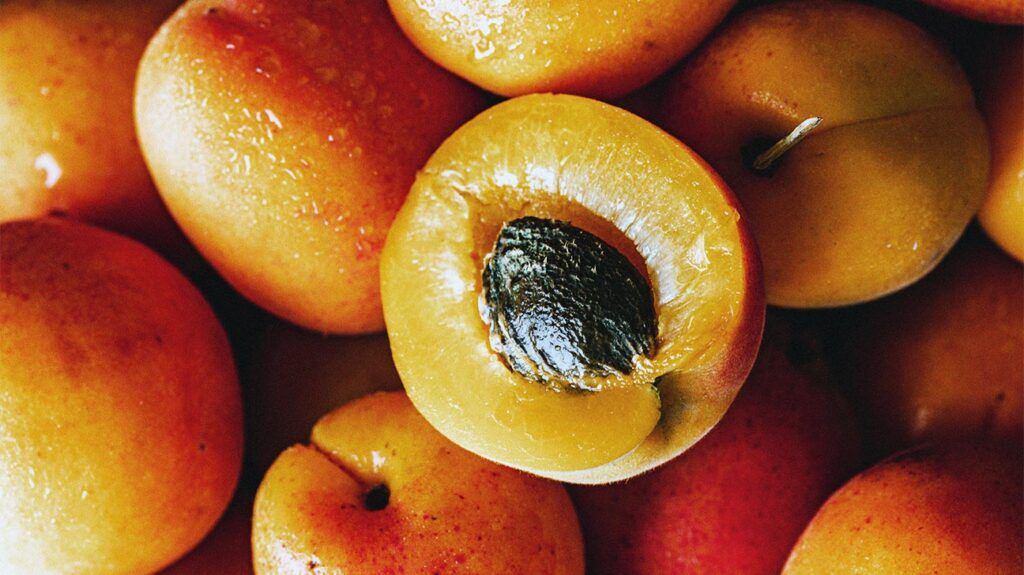Currently, there is no evidence to support that eating apricot seeds, or kernels, can help treat cancer. Apricot kernels may also contain chemicals that have the potential to be harmful to the body.
Some research suggests that apricot kernels may have cancer-fighting properties. However, there is currently no research to support the claim that eating apricot seeds can fight cancer.
Furthermore, scientists have warned that a compound in the apricot kernel converts to cyanide in the body at levels that could be harmful.
This article discusses what apricot seeds are, what research suggests about apricot kernels and cancer, and the potential risks of apricot seeds.
Cancer resources
To discover more evidence-based information and resources for cancer, visit our dedicated hub.

Apricot kernels are similar in appearance to a small almond. Fresh apricot kernels are white, but the skin becomes light brown when it dries out.
According to a
The kernels contain protein, fiber, and oil, which people can extract from the kernel. Apricot kernels do not contain a significant amount of vitamins and minerals, but the oil
Apricot kernel oil is high in essential fatty acids, including stearic acid and linoleic acid, which is a type of omega-6 fatty acid. These are necessary for human health, but the human body cannot produce them, so people should consume fatty acids as part of their diet.
Apricot kernels may have some health benefits, and if manufacturers can remove the harmful elements, certain chemicals inside apricot kernels may one day prove useful for cancer treatment.
For example, scientists have proposed that a compound called amygdalin, present in apricot kernels,
However, there is no evidence to support the idea tat eating apricot kernels can help treat cancer.
What is amygdalin?
Amygdalin is a naturally occurring substance found in apricot kernels. It is also present in the seeds of other fruits, including apples, cherries, plums, and peaches.
While some research suggests that amygdalin may help fight cancer, people should note that the substance is a cyanogenic glycoside. This means that when someone eats amygdalin, it
Future research may allow scientists to learn how to utilize extracted amygdalin safely in cancer treatments.
What is laetrile?
Laetrile, which some people call “vitamin B-17“, is a partly synthetic form of amygdalin.
According to Cancer Research UK, some individuals with cancer might take laetrile as an alternative treatment in the hope that it will:
- “detox” and cleanse the body
- boost their energy levels
- improve their overall health and sense of wellbeing
- prolong life
It is available as:
- a skin lotion
- oral tablets
- injections
- a liquid to insert into the rectum
However, the United States Food and Drug Administration (FDA)
Additionally, laetrile may cause health effects that are similar to those of cyanide poisoning, which the next section discusses in more detail.
Apricot kernels contain amygdalin, which
Cyanide kills cells in the human body by preventing them from using oxygen. It is particularly harmful to the heart and the brain because they use a lot of oxygen.
Depending on the dose, consuming cyanide
- a headache
- nausea
- vomiting
- abdominal cramps
- dizziness
- weakness
- mental confusion
- convulsions
- difficulty breathing
- chest pain
- loss of consciousness
- changes in blood pressure
- coma
- death
The European Food Safety Authority (EFSA) advises that no one should consume more than 20 micrograms (mcg) of cyanide per kilogram of body weight at one time. This may limit consumption to roughly three small kernels for adults and half a small kernel for children.
Laetrile risks
According to the National Cancer Institute (NCI), laetrile
Side effects of laetrile are similar to those of cyanide poisoning. They include:
- dizziness
- headache
- nausea
- vomiting
- cyanosis
- droopy upper eyelids
- liver damage
- fever
- difficulty walking due to nerve damage
- confusion
- coma
- death
Using unproven methods in place of evidence-based cancer treatments, such as targeted drugs or radiation therapy, can cause serious harm.
Below are some commonly asked questions about apricot seeds.
How many apricot seeds should a person eat a day?
Apricot seeds, or kernels, contain a natural chemical called amygdalin. Consuming a large amount of these seeds
According to the European Food Safety Authority (EFSA), no one should consume more than 20 micrograms (mcg) of cyanide per kilogram of body weight at one time. This may limit consumption to roughly three small apricot kernels for adults and half a small kernel for children.
How can a person prepare apricot seeds for eating?
A person can eat apricot seeds raw. They may also consider crushing, grinding, grating, soaking, fermenting, or drying them.
However, it is important to limit the daily consumption of apricot seeds to roughly three small apricot kernels for adults and half a small kernel for children. Otherwise, a person is at risk of getting cyanide poisoning.
Are apricot seeds good for the liver?
According to an
However, more human research is needed before definitive conclusions can be drawn about whether apricot seeds are good for the liver.
Certain substances in apricot seeds, such as amygdalin, may have the potential for use in cancer treatments in the future.
For now, however, healthcare professionals cannot recommend the use of apricot kernels to treat cancer. Eating apricot seeds or taking laetrile in certain amounts may cause cyanide poisoning, which can be fatal.
Therefore, a person should speak with a doctor about which cancer treatments may work best for them and if there are any dietary changes they can make that may support their treatment.
